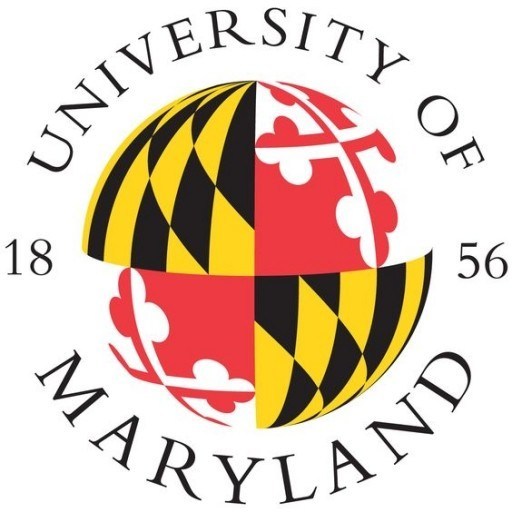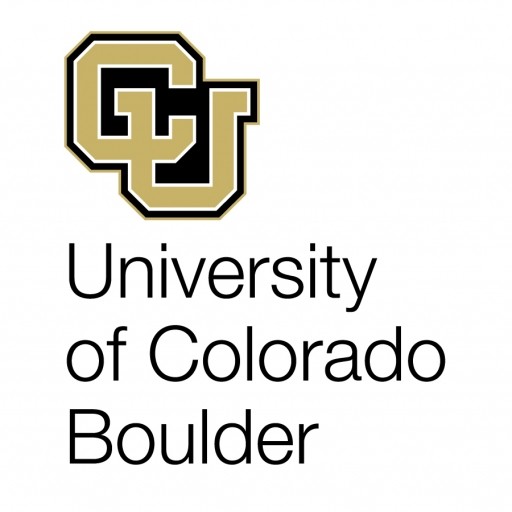Photos of university / #georgiatech
The Bachelor of Science in Aerospace Engineering at the Georgia Institute of Technology offers students a comprehensive education in the principles and practices of designing, developing, and testing aircraft and spacecraft. This program is designed to prepare graduates for careers in the aerospace industry, research institutions, and government agencies, providing them with the technical knowledge and hands-on experience necessary to innovate and solve complex aerospace challenges. The curriculum blends rigorous coursework in aerodynamics, propulsion, materials, structures, controls, and systems, ensuring students gain a solid foundation in both theoretical concepts and practical applications. Students will have the opportunity to participate in state-of-the-art laboratories and research projects, working alongside faculty experts on cutting-edge aerospace technologies. The program emphasizes multidisciplinary collaboration, critical thinking, and problem-solving skills to equip students for leadership roles in the field. In addition to core engineering courses, students can choose from a variety of electives to tailor their education to specific interests within aerospace engineering, such as unmanned aerial vehicles, space systems, or aerothermodynamics. The program also prepares students for graduate studies or professional certification, fostering lifelong learning and continuous professional development. With access to Georgia Tech’s extensive industry partnerships and internship opportunities, students gain practical experience and build professional networks that facilitate their career advancement. Graduates of the Aerospace Engineering program at Georgia Tech are well-positioned to contribute to innovations in aerospace design, safety, and sustainability, making meaningful impacts on transportation, exploration, and national security. The department’s commitment to diversity, inclusion, and excellence ensures that students receive a vibrant educational environment that promotes creativity, collaboration, and discovery.
| Wellness | ||
| APPH 1040 | Sci Foundation of Health | 2 |
| or APPH 1050 | Sci of Phys Act & Health | |
| Core A - Essential Skills | ||
| ENGL 1101 | English Composition I | 3 |
| ENGL 1102 | English Composition II | 3 |
| MATH 1552 | Integral Calculus 1 | 4 |
| Core B - Institutional Options | ||
| CS 1371 | Computing for Engineers | 3 |
| Core C - Humanities | ||
| Any HUM | 6 | |
| Core D - Science, Math, & Technology | ||
| PHYS 2211 | Intro Physics I 2 | 4 |
| PHYS 2212 | Intro Physics II 1,3 | 4 |
| MATH 1551 | Differential Calculus | 2 |
| MATH 1553 | Intro to Linear Algebra | 2 |
| Core E - Social Sciences | ||
| Select one of the following: | 3 | |
|
HIST 2111 |
United States to 1877 | |
|
HIST 2112 |
United States since 1877 | |
|
INTA 1200 |
American Government | |
|
POL 1101 |
Government of the U.S. | |
|
PUBP 3000 |
US Constitutional Issues | |
| Select one of the following: | 3 | |
|
ECON 2100 |
Economics and Policy | |
|
ECON 2101 |
The Global Economy | |
|
ECON 2105 |
Prin of Macroeconomics | |
|
ECON 2106 |
Prin of Microeconomics | |
| Any SS | 6 | |
| Core F - Courses Related to Major | ||
| MATH 2551 | Multivariable Calculus 1 | 4 |
| MATH 2552 | Differential Equations 1 | 4 |
| MSE 2001 | Prin&Appl-Engr Materials | 3 |
| CHEM 1310 | General Chemistry | 4 |
| AE 1601 | Introduction to AE | 1 |
| COE 2001 | Statics 1 | 2 |
| Major Requirements | ||
| AE 2010 | Thermodyn&Fluids Fundam 1 | 4 |
| AE 2220 | Dynamics 1 | 3 |
| COE 3001 | Deformable Bodies | 3 |
| AE 2610 | Intro Exper Methods AE | 1 |
| AE 2611 | Technical Commun for AE | 1 |
| AE 3330 | Intro AE Vehicle Perform | 3 |
| AE 3030 | Aerodynamics | 4 |
| AE 3140 | Structural Analysis | 3 |
| AE 3340 | Design&System Eng Method | 2 |
| AE 3530 | Sys Dynamics&Vibration | 3 |
| AE 3531 | Ctrl Sys Analysis&Design | 3 |
| AE 3610 | Exper Fluids&Solid Mech | 2 |
| AE 4531 | Aircraft Flight Dynamics | 3 |
| or AE 4532 | Spacecraft Flight Dynam | |
| AE 4451 | Jet & Rocket Propulsion | 3 |
| AE 4341 | Aircraft Design | 3 |
| or AE 4342 | Space System Design | |
| or AE 4343 | Rotorcraft Design | |
| AE 4610 | Dynamics & Control Lab | 2 |
| AE Options 4 | 8 | |
| Non-AE Required Courses | ||
| ME 1770 | Intro to Engr Graphics | 3 |
| ECE 3710 | Circuits & Electronics | 2 |
| ECE 3741 | Instrum & Electronic Lab | 1 |
| Math Option 5 | 3 | |
| Free Electives | ||
| Free Electives 6 | 9 | |
| Total Credit Hours | 132 | |
Pass-fail only allowed for Free Electives.
| 1 |
Minimum grade of C required. |
| 2 |
If PHYS 2231 (5 credit hours) is taken, excess hour applies to Free Electives. |
| 3 |
If PHYS 2232 (5 credit hours) is taken, excess hour applies to Free Electives. |
| 4 |
AE courses from list supplied by School |
| 5 |
Math Options: MATH 3215, MATH 3670, MATH 4305, MATH 4317, MATH 4320, MATH 4347, MATH 4541, MATH 4581, MATH 4640 |
| 6 |
ME 2202, ME 3015, ME 3322, and PHYS 2XXX (AP credit) are not allowed. |
- A grade of C or better is required in each 1000 and 2000 level mathematics and physics course; a course with a D or F grade must be repeated the next semester the student is in residence.
- A 2.0 or higher overall grade-point average is required to schedule COE 2001 and AE courses at the 2000 level.
- No more than two D grades are permitted in AE and COE courses listed by number in the sophomore, junior, and senior years.
- Courses in which a D was earned may be repeated at any time with the approval of an advisor.
Requirements
- The non-refundable freshman application fee is $75 (international applicants: $85). Students who pay an application fee but do not submit an application will not have their fee refunded.
- Included with the Common Application and Georgia Tech Questions is one long essay and two short answer essays. The purpose of the essays is to assess your writing ability and, more importantly, to learn more about you as an individual. This portion of the application helps us get to know you, assess mutual fit and better understand what you could contribute to Georgia Tech.
- TOEFL or IELTS scores
- We will only accept one (1) recommendation from your counselor and one (1) from the teacher of your choice. Any additional recommendations will not be considered with your application.
- Interview
- The GPA we consider is the one taken directly from your high school transcript. We will use a 100 point GPA, if available, and weighted, if available. If not, we’re happy to consider a 4.0 GPA or similar and/or unweighted GPA.
- If your high school does not provide a GPA or you have attended multiple high schools, we will recalculate a weighted 4.0 GPA (0.5 points added for AP, IB, Dual Enrollment & AICE courses) using core courses only.
- To help us better understand your high school and its curriculum, your counselor will submit a School Report form and/or School Profile with your transcript.
- The University System of Georgia requires minimum academic courses of all first time students, though most applicants exceed those in at least one area. USG requirements include:
- English - 4 Units
- Math - 4 Units
- Science - 4 Units
- Social Science - 3 Units
- Foreign Language - 2 Units
The Bachelor of Science in Aerospace Engineering at Georgia Institute of Technology offers a comprehensive funding and financial aid structure to support students throughout their academic journey. Undergraduate students can apply for various types of financial assistance, including scholarships, grants, work-study programs, and loans. The university provides merit-based scholarships awarded based on academic achievement, leadership qualities, and extracurricular involvement. These scholarships are renewable annually, provided the student maintains the required academic standards. Additionally, need-based grants are available to students who demonstrate significant financial need, helping to reduce the financial burden of their education.
The Georgia Institute of Technology also participates in federal financial aid programs, allowing eligible students to access federal grants and low-interest student loans. The Free Application for Federal Student Aid (FAFSA) is a prerequisite to be considered for these programs. The university’s financial aid office offers personalized assistance to guide students through the application process and provides information about eligibility, deadlines, and required documentation.
Apart from external aid, students have opportunities to work on campus through work-study programs, which provide part-time employment in various university departments, including research labs and administration offices. This not only helps to offset educational costs but also provides valuable professional experience related to aerospace engineering.
The university encourages students to explore external scholarships and sponsorships offered by industry partners, aerospace companies, and professional organizations such as the American Institute of Aeronautics and Astronautics (AIAA). These external awards can significantly supplement university-provided aid.
Moreover, Georgia Tech offers financial planning and counseling services to assist students and families in understanding and managing the costs associated with the aerospace engineering degree. Prospective students are advised to thoroughly research all available financial options early in their academic planning to ensure they can effectively finance their studies.
Overall, Georgia Institute of Technology is committed to making aerospace engineering education accessible through a broad array of financial support options, ensuring that qualified students from diverse backgrounds can pursue a degree in this demanding and highly valued field.
The Bachelor of Science in Aerospace Engineering at Georgia Institute of Technology is a comprehensive program designed to prepare students for a wide range of careers in the aerospace industry. The curriculum provides a strong foundation in the fundamental principles of engineering, physics, and mathematics, with specialized courses focusing on aerodynamics, materials and structures, propulsion, fluid mechanics, and systems engineering. Students have access to state-of-the-art laboratories and research facilities, enabling hands-on learning and practical experience. The program emphasizes the development of analytical skills, problem-solving abilities, and teamwork, preparing graduates for roles in designing, analyzing, and testing aircraft and spacecraft.
Georgia Tech's aerospace engineering program also offers numerous opportunities for research and internships, allowing students to collaborate with industry leaders and contribute to innovative projects. The program encourages interdisciplinary collaboration, integrating aspects of electrical engineering, computer science, and mechanical engineering to address complex engineering challenges. Students are also encouraged to participate in student organizations such as the Georgia Tech Society of Aerospace Engineering, which fosters professional development and networking.
Graduates of the program are well-equipped to pursue careers in aerospace manufacturing, research and development, government agencies, or academia. Many alumni have successfully entered prominent aerospace corporations like Boeing, Lockheed Martin, NASA, and SpaceX. The program is accredited by the Engineering Accreditation Commission of ABET, ensuring that it meets high standards of quality and rigor. Additionally, Georgia Tech provides extensive resources for career services and alumni networking to support students throughout their academic journey and beyond. The aerospace engineering bachelor’s program at Georgia Tech is recognized worldwide for its excellence, innovation, and contribution to advancing aerospace technology.









